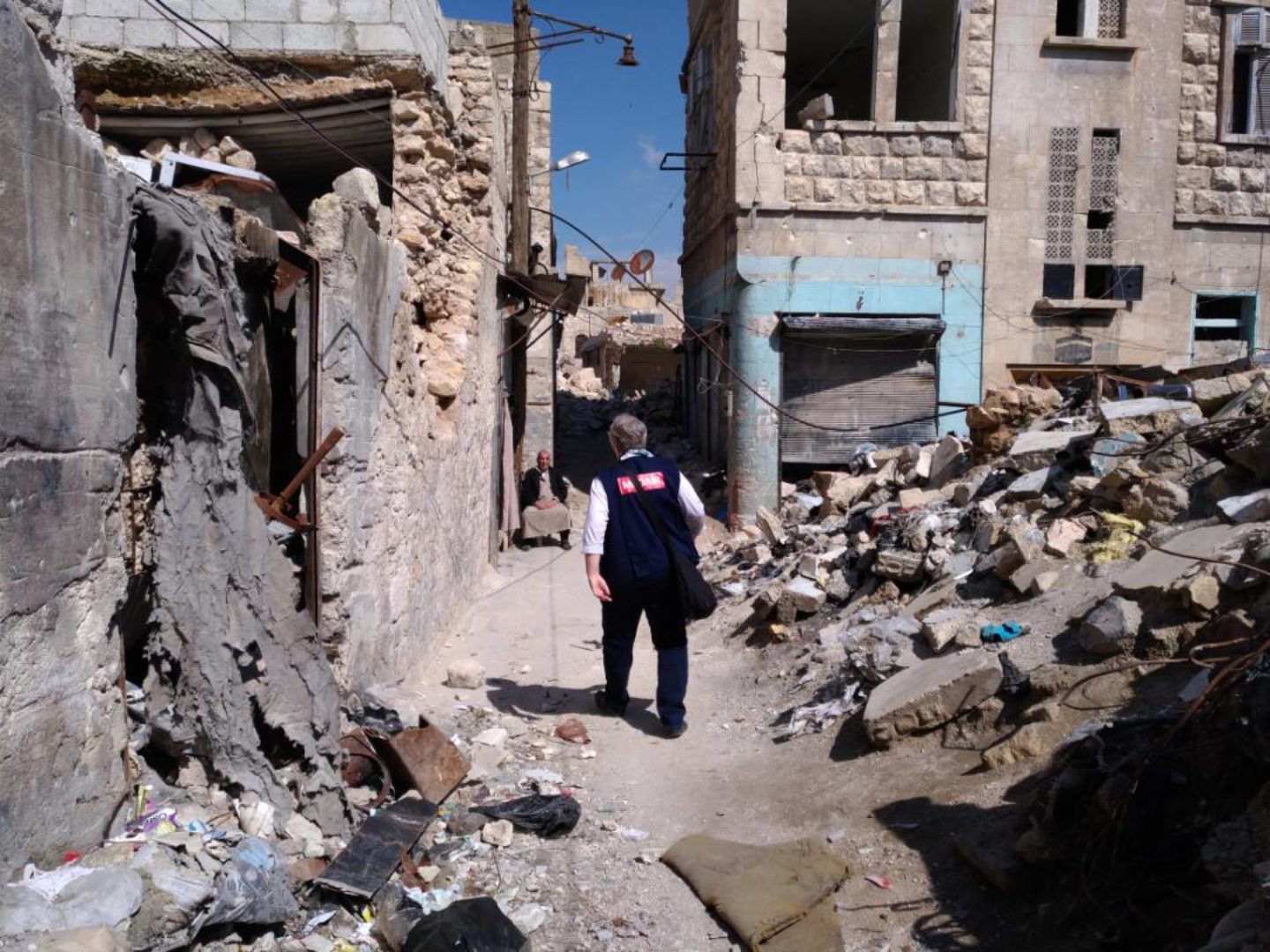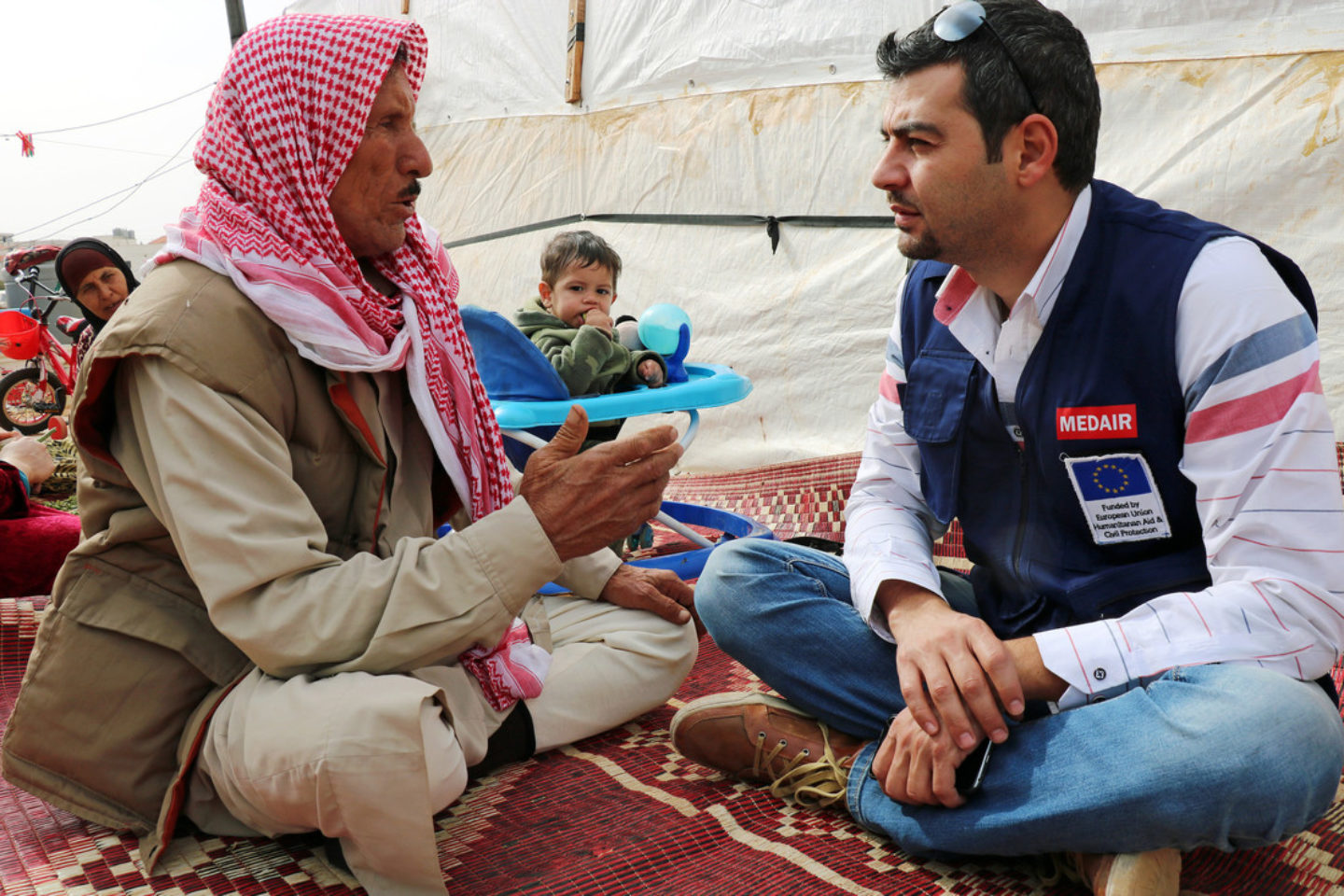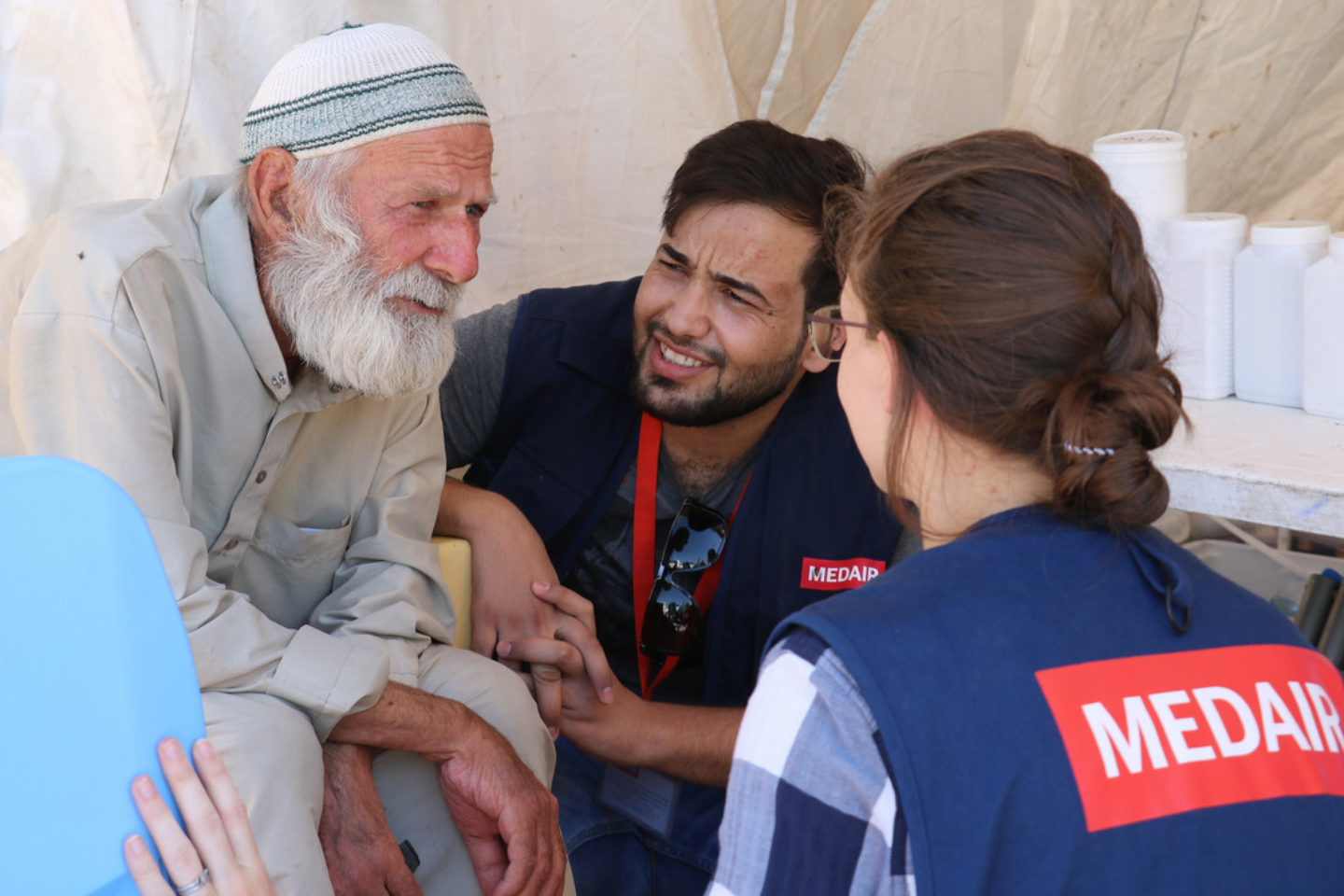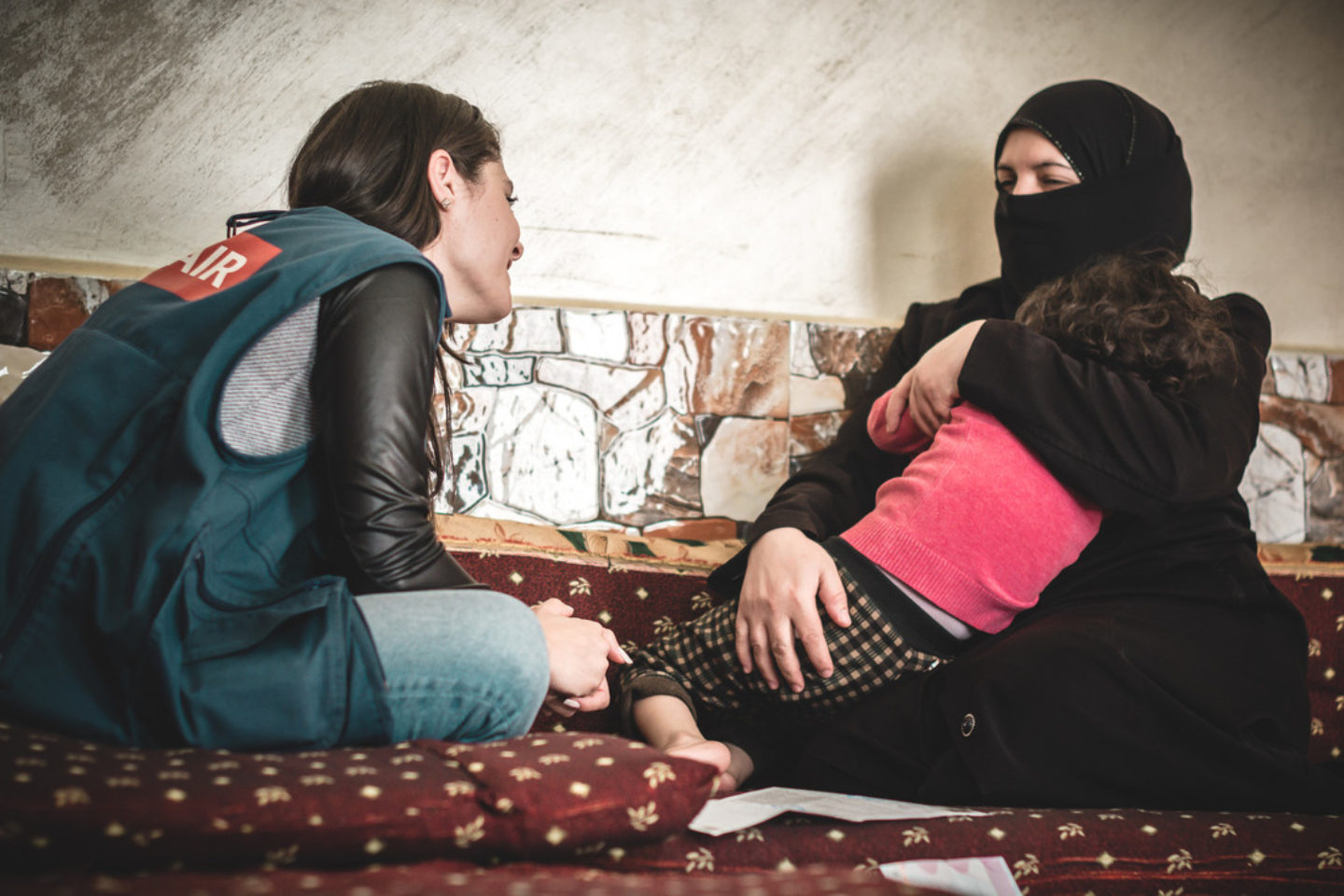Stories
Humanitarian Principles in the Middle East
Humanitarian. Impartial. Neutral. Independent.
These four concepts are known as the humanitarian principles, enshrined in the Code of Conduct for International Red Cross and Red Crescent Movement and NGOs in Disaster Relief, and reflected in the Core Humanitarian Standard. For Medair, along with many other organisations, these principles are a fundamental part of how we approach our work.
But in practical terms, what does this mean? Former Middle East Regional Representative Ivor Morgan explains the principles in detail and how they apply to Medair’s work.
Humanitarian
Humanity – also known as the humanitarian imperative – means that all of our work is driven by a desire to assist people in need. We recognise that each life matters and that every person is precious and important. This recognition drives us to save lives, relieve human suffering, and maintain human dignity in situations of crisis or disaster.
In the Middle East our commitment to the humanitarian imperative is demonstrated in many ways. In Jordan, our staff members search the back streets of Amman to find vulnerable Syrian refugees who are not receiving assistance from other agencies. In Lebanon, our staff wade through floodwaters to assist families whose shelters have been damaged in a storm. Our colleagues in Syria travel to locations that were recently held by armed groups to distribute life-saving assistance to civilians. In Iraq, our health teams drive for hours to provide health services to people in remote villages who would not otherwise have access to health care.

Impartial
Impartiality means that we provide assistance solely on the basis of need and without discrimination. We believe each life matters, and so we provide assistance to people based on how much they need assistance. Impartiality means that we do not take other factors, such as race, creed, or nationality, into consideration when we decide who needs humanitarian support. We respond to needs based on needs alone.
An example of impartiality from Lebanon: Our shelter teams provide support to vulnerable Syrian refugee families, distributing materials with which to build or repair a tent in an informal settlement. We carefully assess households in need of support using specific criteria, such as the current condition of their tent, or whether they have only recently arrived from another location. These assessments ensure that shelter kits are given to the families who need them most. Our staff also pay close attention to people with specific needs, such as the elderly or people living with disabilities, who may otherwise have missed out on or are unable to benefit from the standard form of assistance.
Medair is motivated by Christian faith to serve families affected by crisis, but impartiality means that we provide assistance to people regardless of their faith. In the Middle East, the rich composition of our national staff reflects the religious diversity of the communities in which we work, and the delivery of our assistance is not tied to the acceptance of any particular religious opinion.

Neutral
Neutrality means that Medair does not favour any side in an armed conflict or other dispute.
Families in need of humanitarian assistance are often caught up in situations of armed conflict. In order to allow humanitarian actors to access these families in need, armed actors must be able to trust that humanitarian organisations such as Medair are present only to provide assistance to civilians and other non-combatants in need of assistance. As a neutral organisation we do not seek to influence conflict in any way. We seek to provide assistance to vulnerable families, regardless of who controls the territory where they live.
As in many other country programmes, Medair has a strict No Arms on Board policy for its vehicles and facilities, and does not use armed escorts or hire armed guards. By clearly separating ourselves from the various armed actors around us, we demonstrate that we are present solely to provide assistance to people in need.

Independent
As an independent organisation, we cannot and do not act as instruments of government foreign policy.
In addition to private donations, Medair receives humanitarian funding from institutional donors, such as the humanitarian departments of governments or intergovernmental alliances. Receiving both private and institutional funding is instrumental in allowing us to reach the greatest number of people as possible; however we carefully evaluate government donors to ensure that they will allow us to uphold the humanitarian principles and will not seek to unduly influence our work or whom we assist. For our staff to have access to those in need, all parties in the areas where we work need to have confidence that Medair is not acting on the behalf of any government and is present solely to support families in need.
In parts of the Middle East, Medair’s adherence to the independence principle means that, while we are transparent about who funds us, we sometimes refrain from displaying government donor logos in facilities or vehicles, as this may incorrectly associate us with that government’s foreign policy. Not displaying logos can also enable us to work in areas where there may be strong sentiments around some governments.
Independence also means that Medair prioritises those most in need, regardless of how others may classify their status (as refugee, internally displaced, etc). In some cases local authorities may make recommendations to Medair about which communities or individuals need assistance, however independence means that Medair will also conduct its own needs assessment to verify needs before committing to the provision of aid.

In summary, the humanitarian principles are to assist people solely on the fact that they are in need, and to stand apart from armed actors and governments. These principles govern our work and allow us to safely gain access to those in need. They are a fundamental aspect of how we deliver humanitarian assistance to families affected by crisis.
For further reference, see Humanitarian Ethics: A Guide to the Morality of Aid in War and Disaster, by Hugo Slim.
